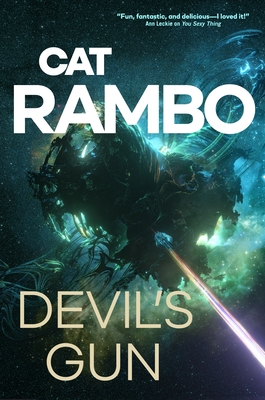 Devil's Gun (Disco Space Opera #2) by Cat Rambo
Devil's Gun (Disco Space Opera #2) by Cat Rambo Format: eARC
Source: supplied by publisher via Edelweiss
Formats available: hardcover, paperback, ebook, audiobook
Genres: science fiction, space opera
Series: Disco Space Opera #2
Pages: 288
Published by Tor Books on August 29, 2023
Purchasing Info: Author's Website, Publisher's Website, Amazon, Barnes & Noble, Kobo, Bookshop.org
Goodreads
No one escapes their past as the crew of the You Sexy Thing attempts to navigate the hazards of opening a pop-up restaurant and the dangers of a wrathful pirate-king seeking vengeance in Cat Rambo's Devil's Gun .
Life’s hard when you’re on the run from a vengeful pirate-king…
When Niko and her crew find that the intergalactic Gate they're planning on escaping through is out of commission, they make the most of things, creating a pop-up restaurant to serve the dozens of other stranded ships.
But when an archaeologist shows up claiming to be able to fix the problem, Niko smells something suspicious cooking. Nonetheless, they allow Farren to take them to an ancient site where they may be able to find the weapon that could stop Tubal Last before he can take his revenge.
There, in one of the most dangerous places in the Known Universe, each of them will face ghosts from their Thorn attempts something desperate and highly illegal to regain his lost twin, Atlanta will have to cast aside her old role and find her new one, Dabry must confront memories of his lost daughter, and Niko is forced to find Petalia again, despite a promise not to seek them out.
Meanwhile, You Sexy Thing continues to figure out what it wants from life―which may not be the same desire as Niko and the rest of the crew.
My Review:
Devil’s Gun picks up the story of You Sexy Thing and its crew just after the moment at the end of the first book in the Disco Space Opera series, named after the ship and the damnable earworm of the song that the title comes from.
It’s the point where they’ve just learned that the evil space pirate they hoped they’d killed as they escaped his imploding, exploding ship/space station. Which, to be totally fair, was entirely deserved as he had already murdered one of their number and spent years brainwashing Captain Niko Larson’s former lover against her.
Pirate King Jubal Last is a bad, bad man, and the universe wasn’t going to miss him if he was gone. The only problem is that he isn’t. Meaning that Larson and her crew are on the run, away from Last and towards someone who they hope will help them figure out a way to take him out. Again.
If only they can find her. And if only she’ll give them the time of day. Because it’s that same brainwashed ex-lover that Larson still hasn’t gotten over. Just as the rest of the crew hasn’t gotten over the damage that Last did in their recent encounter.
And in the midst of Larson chasing down what once was, and one of her crew members trying to breathe life back into someone who has lost theirs, a new member of the crew searches for purpose while the sentient, sapient bioship that Larson is nominally – sometimes very nominally – in command of pursues its own interests for its own purposes. Specifically, for the purpose of creating drama and not getting bored.
It’s a recipe for disaster – but that’s not the problem it would be for most ship’s crews. Because if there is one thing that this crew is good at, it’s making a tasty dish out of a completely mismatched and even downright dangerous list of ingredients!
 Escape Rating B: I picked this up because I enjoyed the first book in the series, You Sexy Thing, very much in spite of its unfortunate case of villain fail. The crew is as motley as you’d expect, but their bone-deep respect and reliance on each other – and the way they deal with their life and their livelihood through bantering away the stress made it an overall fun read with a heaping helping of heartbreak at the end.
Escape Rating B: I picked this up because I enjoyed the first book in the series, You Sexy Thing, very much in spite of its unfortunate case of villain fail. The crew is as motley as you’d expect, but their bone-deep respect and reliance on each other – and the way they deal with their life and their livelihood through bantering away the stress made it an overall fun read with a heaping helping of heartbreak at the end.
But thank goodness that there’s a “when last we left our heroes” summary of that first book in the beginning of this second one, because it’s been over a year since I read it and almost two years since it came out.
I liked Devil’s Gun but didn’t love it nearly as much as I did You Sexy Thing in spite of that villain fail. Jubal Last was just a bit too over-the-top bwahaha to make sense as a character. But I loved the crew and got invested in their situation more than enough to feel for them as things went down.
Devil’s Gun reads like a middle book. It also reads as a chase for a macguffin that no one, least of all Niko Larson herself, is ever sure isn’t a scam. And it felt like a collection of separate plot threads that don’t quite braid together into a whole, as several members of the crew have their own problems to pursue and keep themselves to themselves more than a bit.
With the ship in pursuit of its own goals – to the detriment of everyone and everything else – as the story goes along. Admittedly, that part is fascinating. It’s as though Moya in Farscape took the ship where she wanted to go instead of where the crew wanted to go ALL THE TIME.
Which would have been cool – even as the crew would have been infuriated. As Larson often is in this story.
The sentient ship You Sexy Thing will certainly make readers think of Farscape and its sentient ship, Moya, although You Sexy Thing has considerably more personality. I’m not sure about the regular comparisons between this series and the Great British Bake Off as there’s no food competition going on – although there is plenty of cooking and baking. There’s also more than a bit of a resemblance between this universe and its intergalactic ‘gates’ left behind by an ancient race of Forerunners and Mass Effect and its mass relay travel gates left behind by the ancient Prothean race.
In other words, there are elements of Devil’s Gun and the Disco Space Opera series that will ring a lot of bells and bring back a lot of memories for SF readers, (I’m sure I’ve seen the Devil’s Gun itself, or a reasonable facsimile thereof, in Simon R. Green’s intertwined universes) blended into a story that’s a whole lot of fun and rides or dies on the interpersonal relationships among the crew. Which is also not an uncommon element of SF and space opera in general.
So if that’s your jam as it is for this reader, take a trip on the You Sexy Thing with Devil’s Gun. And the fun – for certainly deadly and sometimes insane definitions of fun – isn’t over yet. Devil’s Gun, like You Sexy Thing before it, ends on a mic drop. There is clearly more to come for this crew, and I’m looking forward to it!

 Knighthunter by
Knighthunter by  Escape Rating A-: In terms of the overarching story of the Oronis vs. the ‘Big Bad’, in this instance the Gek’Dragar, Nea and Kaden’s pursuit of a series of fleeing Gek’Dragar ships through Gek’Dragar space gives the reader a tour of the galaxy and a whole host of reasons to understand why the Oronis have such a huge and justified hate-on for their scaly enemy.
Escape Rating A-: In terms of the overarching story of the Oronis vs. the ‘Big Bad’, in this instance the Gek’Dragar, Nea and Kaden’s pursuit of a series of fleeing Gek’Dragar ships through Gek’Dragar space gives the reader a tour of the galaxy and a whole host of reasons to understand why the Oronis have such a huge and justified hate-on for their scaly enemy.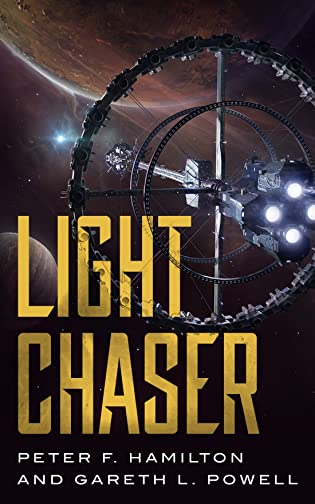 Light Chaser by
Light Chaser by 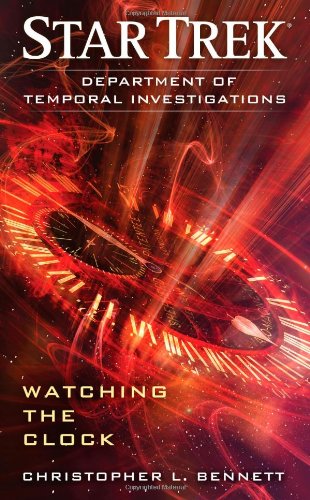 Watching the Clock (Star Trek: Department of Temporal Investigations #1) by
Watching the Clock (Star Trek: Department of Temporal Investigations #1) by 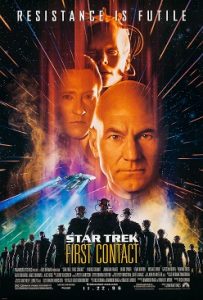 Which sounds a lot like what the Borg were attempting in
Which sounds a lot like what the Borg were attempting in 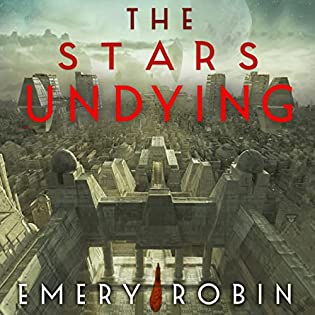 The Stars Undying (Empire Without End, #1) by
The Stars Undying (Empire Without End, #1) by 
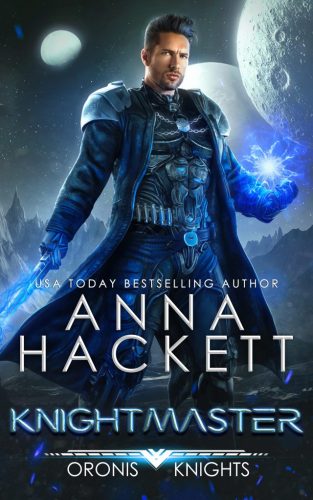 Knightmaster (Oronis Knights #1) by
Knightmaster (Oronis Knights #1) by  We first met the Oronis Knights in
We first met the Oronis Knights in  Escape Rating A-: Their hunt for the knightqueen’s kidnappers lead Kennedy and Knightmaster Ashtin Caydor from scummy space stations with even scummier information brokers to a jungle planet that seems designed to eat them both alive before they can discover the next clue. They’re in a race against time while not knowing their enemy’s true purpose or how much time they have left. If it isn’t already too late.
Escape Rating A-: Their hunt for the knightqueen’s kidnappers lead Kennedy and Knightmaster Ashtin Caydor from scummy space stations with even scummier information brokers to a jungle planet that seems designed to eat them both alive before they can discover the next clue. They’re in a race against time while not knowing their enemy’s true purpose or how much time they have left. If it isn’t already too late.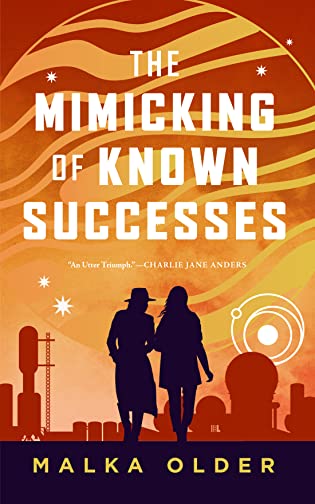 The Mimicking of Known Successes (Investigations of Mossa & Pleiti, #1) by
The Mimicking of Known Successes (Investigations of Mossa & Pleiti, #1) by  The Weight of Command by
The Weight of Command by  Escape Rating A: This is not exactly the first time this scenario has been done. (There are at least SIX different variations of it in the
Escape Rating A: This is not exactly the first time this scenario has been done. (There are at least SIX different variations of it in the 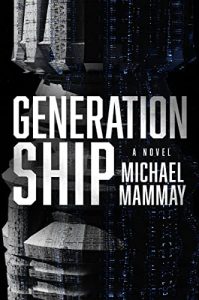 I picked up The Weight of Command because I adored the author’s previous work, especially his
I picked up The Weight of Command because I adored the author’s previous work, especially his 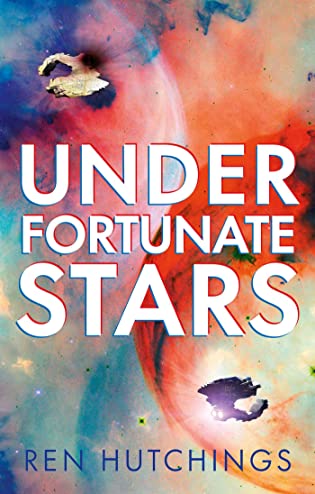 Under Fortunate Stars by
Under Fortunate Stars by 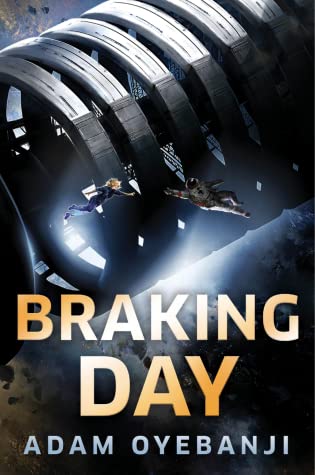 Braking Day by
Braking Day by  The question of whether the fleet will cripple itself, whether they and their old enemy will wipe each other out, or whether the cybernetic space dragons will decide that they are all collectively too stupid to live creates the kind of non-stop adventure that will keep readers on the edge of their seats even after the big, explosive climax.
The question of whether the fleet will cripple itself, whether they and their old enemy will wipe each other out, or whether the cybernetic space dragons will decide that they are all collectively too stupid to live creates the kind of non-stop adventure that will keep readers on the edge of their seats even after the big, explosive climax.